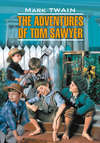Read the book: «Essays on Paul Bourget»
WHAT PAUL BOURGET THINKS OF US
He reports the American joke correctly. In Boston they ask, How much does he know? in New York, How much is he worth? in Philadelphia, Who were his parents? And when an alien observer turns his telescope upon us – advertisedly in our own special interest – a natural apprehension moves us to ask, What is the diameter of his reflector?
I take a great interest in M. Bourget’s chapters, for I know by the newspapers that there are several Americans who are expecting to get a whole education out of them; several who foresaw, and also foretold, that our long night was over, and a light almost divine about to break upon the land.
“His utterances concerning us are bound to be weighty and well timed.”
“He gives us an object-lesson which should be thoughtfully and profitably studied.”
These well-considered and important verdicts were of a nature to restore public confidence, which had been disquieted by questionings as to whether so young a teacher would be qualified to take so large a class as 70,000,000, distributed over so extensive a schoolhouse as America, and pull it through without assistance.
I was even disquieted myself, although I am of a cold, calm temperament, and not easily disturbed. I feared for my country. And I was not wholly tranquilized by the verdicts rendered as above. It seemed to me that there was still room for doubt. In fact, in looking the ground over I became more disturbed than I was before. Many worrying questions came up in my mind. Two were prominent. Where had the teacher gotten his equipment? What was his method?
He had gotten his equipment in France.
Then as to his method! I saw by his own intimations that he was an Observer, and had a System that used by naturalists and other scientists. The naturalist collects many bugs and reptiles and butterflies and studies their ways a long time patiently. By this means he is presently able to group these creatures into families and subdivisions of families by nice shadings of differences observable in their characters. Then he labels all those shaded bugs and things with nicely descriptive group names, and is now happy, for his great work is completed, and as a result he intimately knows every bug and shade of a bug there, inside and out. It may be true, but a person who was not a naturalist would feel safer about it if he had the opinion of the bug. I think it is a pleasant System, but subject to error.
The Observer of Peoples has to be a Classifier, a Grouper, a Deducer, a Generalizer, a Psychologizer; and, first and last, a Thinker. He has to be all these, and when he is at home, observing his own folk, he is often able to prove competency. But history has shown that when he is abroad observing unfamiliar peoples the chances are heavily against him. He is then a naturalist observing a bug, with no more than a naturalist’s chance of being able to tell the bug anything new about itself, and no more than a naturalist’s chance of being able to teach it any new ways which it will prefer to its own.
To return to that first question. M. Bourget, as teacher, would simply be France teaching America. It seemed to me that the outlook was dark – almost Egyptian, in fact. What would the new teacher, representing France, teach us? Railroading? No. France knows nothing valuable about railroading. Steamshipping? No. France has no superiorities over us in that matter. Steamboating? No. French steamboating is still of Fulton’s date – 1809. Postal service? No. France is a back number there. Telegraphy? No, we taught her that ourselves. Journalism? No. Magazining? No, that is our own specialty. Government? No; Liberty, Equality, Fraternity, Nobility, Democracy, Adultery the system is too variegated for our climate. Religion? No, not variegated enough for our climate. Morals? No, we cannot rob the poor to enrich ourselves. Novel-writing? No. M. Bourget and the others know only one plan, and when that is expurgated there is nothing left of the book.
I wish I could think what he is going to teach us. Can it be Deportment? But he experimented in that at Newport and failed to give satisfaction, except to a few. Those few are pleased. They are enjoying their joy as well as they can. They confess their happiness to the interviewer. They feel pretty striped, but they remember with reverent recognition that they had sugar between the cuts. True, sugar with sand in it, but sugar. And true, they had some trouble to tell which was sugar and which was sand, because the sugar itself looked just like the sand, and also had a gravelly taste; still, they knew that the sugar was there, and would have been very good sugar indeed if it had been screened. Yes, they are pleased; not noisily so, but pleased; invaded, or streaked, as one may say, with little recurrent shivers of joy – subdued joy, so to speak, not the overdone kind. And they commune together, these, and massage each other with comforting sayings, in a sweet spirit of resignation and thankfulness, mixing these elements in the same proportions as the sugar and the sand, as a memorial, and saying, the one to the other, and to the interviewer: “It was severe – yes, it was bitterly severe; but oh, how true it was; and it will do us so much good!”
If it isn’t Deportment, what is left? It was at this point that I seemed to get on the right track at last. M. Bourget would teach us to know ourselves; that was it: he would reveal us to ourselves. That would be an education. He would explain us to ourselves. Then we should understand ourselves; and after that be able to go on more intelligently.
It seemed a doubtful scheme. He could explain us to himself – that would be easy. That would be the same as the naturalist explaining the bug to himself. But to explain the bug to the bug – that is quite a different matter. The bug may not know himself perfectly, but he knows himself better than the naturalist can know him, at any rate.
A foreigner can photograph the exteriors of a nation, but I think that that is as far as he can get. I think that no foreigner can report its interior – its soul, its life, its speech, its thought. I think that a knowledge of these things is acquirable in only one way; not two or four or six – absorption; years and years of unconscious absorption; years and years of intercourse with the life concerned; of living it, indeed; sharing personally in its shames and prides, its joys and griefs, its loves and hates, its prosperities and reverses, its shows and shabbinesses, its deep patriotisms, its whirlwinds of political passion, its adorations – of flag, and heroic dead, and the glory of the national name. Observation? Of what real value is it? One learns peoples through the heart, not the eyes or the intellect.
There is only one expert who is qualified to examine the souls and the life of a people and make a valuable report – the native novelist. This expert is so rare that the most populous country can never have fifteen conspicuously and confessedly competent ones in stock at one time. This native specialist is not qualified to begin work until he has been absorbing during twenty-five years. How much of his competency is derived from conscious “observation”? The amount is so slight that it counts for next to nothing in the equipment. Almost the whole capital of the novelist is the slow accumulation of unconscious observation – absorption. The native expert’s intentional observation of manners, speech, character, and ways of life can have value, for the native knows what they mean without having to cipher out the meaning. But I should be astonished to see a foreigner get at the right meanings, catch the elusive shades of these subtle things. Even the native novelist becomes a foreigner, with a foreigner’s limitations, when he steps from the State whose life is familiar to him into a State whose life he has not lived. Bret Harte got his California and his Californians by unconscious absorption, and put both of them into his tales alive. But when he came from the Pacific to the Atlantic and tried to do Newport life from study-conscious observation – his failure was absolutely monumental. Newport is a disastrous place for the unacclimated observer, evidently.
To return to novel-building. Does the native novelist try to generalize the nation? No, he lays plainly before you the ways and speech and life of a few people grouped in a certain place – his own place – and that is one book. In time he and his brethren will report to you the life and the people of the whole nation – the life of a group in a New England village; in a New York village; in a Texan village; in an Oregon village; in villages in fifty States and Territories; then the farm-life in fifty States and Territories; a hundred patches of life and groups of people in a dozen widely separated cities. And the Indians will be attended to; and the cowboys; and the gold and silver miners; and the negroes; and the Idiots and Congressmen; and the Irish, the Germans, the Italians, the Swedes, the French, the Chinamen, the Greasers; and the Catholics, the Methodists, the Presbyterians, the Congregationalists, the Baptists, the Spiritualists, the Mormons, the Shakers, the Quakers, the Jews, the Campbellites, the infidels, the Christian Scientists, the Mind-Curists, the Faith-Curists, the train-robbers, the White Caps, the Moonshiners. And when a thousand able novels have been written, there you have the soul of the people, the life of the people, the speech of the people; and not anywhere else can these be had. And the shadings of character, manners, feelings, ambitions, will be infinite.
“‘The nature of a people’ is always of a similar shade in its vices and its virtues, in its frivolities and in its labor.
‘It is this physiognomy which it is necessary to discover’, and every document is good, from the hall of a casino to the church, from the foibles of a fashionable woman to the suggestions of a revolutionary leader. I am therefore quite sure that this ‘American soul’, the principal interest and the great object of my voyage, appears behind the records of Newport for those who choose to see it.” – M. Paul Bourget.
[The italics (‘’) are mine.] It is a large contract which he has undertaken. “Records” is a pretty poor word there, but I think the use of it is due to hasty translation. In the original the word is ‘fastes’. I think M. Bourget meant to suggest that he expected to find the great “American soul” secreted behind the ostentations of Newport; and that he was going to get it out and examine it, and generalize it, and psychologize it, and make it reveal to him its hidden vast mystery: “the nature of the people” of the United States of America. We have been accused of being a nation addicted to inventing wild schemes. I trust that we shall be allowed to retire to second place now.
There isn’t a single human characteristic that can be safely labeled “American.” There isn’t a single human ambition, or religious trend, or drift of thought, or peculiarity of education, or code of principles, or breed of folly, or style of conversation, or preference for a particular subject for discussion, or form of legs or trunk or head or face or expression or complexion, or gait, or dress, or manners, or disposition, or any other human detail, inside or outside, that can rationally be generalized as “American.”




















